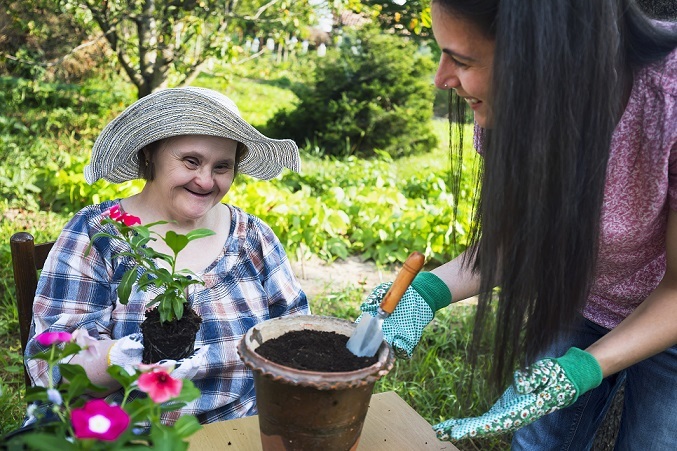The Importance of Social and Community Participation
Discover the vital role of social and community participation in fostering connections, inclusion, and a sense of belonging.

One of the many positives in Scope’s Positive Behaviour Support (PBS) work is our human rights approach in everything we do.
One way we do this is by separating the person from the behaviour. We understand that behaviours are only there as they serve a purpose and/or communicate a message. It is up to us to work together with the person and their care team to find out why the person has a need to use behaviours of concern to have their needs met. Once the functions of the behaviour are known, alternative behaviours can be planned and implemented.
The PBS team also places quality of life, at the heart of what we do. If you think about it, when you are content with your life, then you will have an overall sense of wellbeing and therefore, a higher tolerance to manage difficult situations. Quality of life looks different for each person, but generally, being able to manage health needs, feeling heard, feeling safe and secure in your home, and having engaged and meaningful activities to engage in, can helps us to feel more content. Therefore, one part of what the team does is to find out about times in the person’s life when they were not displaying behaviours of concern and see how we can support them back to that positive space.
The Scope PBS team is unique in that we can draw knowledge and expertise from our multidisciplinary team in areas such as Psychology, Occupational Therapy, Applied Behaviour Analysis, Social Work, Education and Speech Pathology. This approach allows for us to consider several different perspectives. We gather information from the person, as well as people and organisations involved in the life of the person, to create a holistic understanding of the person. This means not just finding out about the behaviours of concern, but also find out a person’s likes and dislikes, abilities, and strengths, etc. Once again, this is helping us form a positive picture of the person. Part of the process also involves collecting data to better understand the behaviours and assist the PBS team to work out why the behaviours are occurring. Once we know these reasons, we can teach the person better ways the person can have their needs met to help them thrive.
Historically there was a belief that inappropriate behaviours needed to be punished to be stopped. This has been found to be incorrect. Strategies need to address the root cause of the behaviour, not simply deter, or suppress it.
These days, it is widely accepted that the best behaviour support happens when the behaviour is not happening at all! Confused? Well, what this means is, we focus on implementing proactive strategies such as extending and improving the person’s current skills, teaching replacement skills, and providing positive reinforcement when the person is engaged in appropriate behaviour, supporting the person to meet their need in a positive way. For the people who make up the support team (family, friends, carers in all environments such as work, school, respite, accommodation, etc.) the idea is to consistently reinforce the development of new skills.
A very important aspect of this approach is consistently using the least restrictive intervention to assist the person to live their life. A restrictive intervention is any intervention that is used to restrict the rights or freedom of movement of a person with a disability. This is described in the Behaviour Support Plan that is written to summarise all the prescribed strategies, including how restrictions will be reduced over time.
So, in summary, the positives in Scope’s Positive Behaviour Support are:
If you’re interested in finding out more about the Positive Behaviour Support Team and the services we offer, click the button below or call 1300 472 673 or email [email protected].